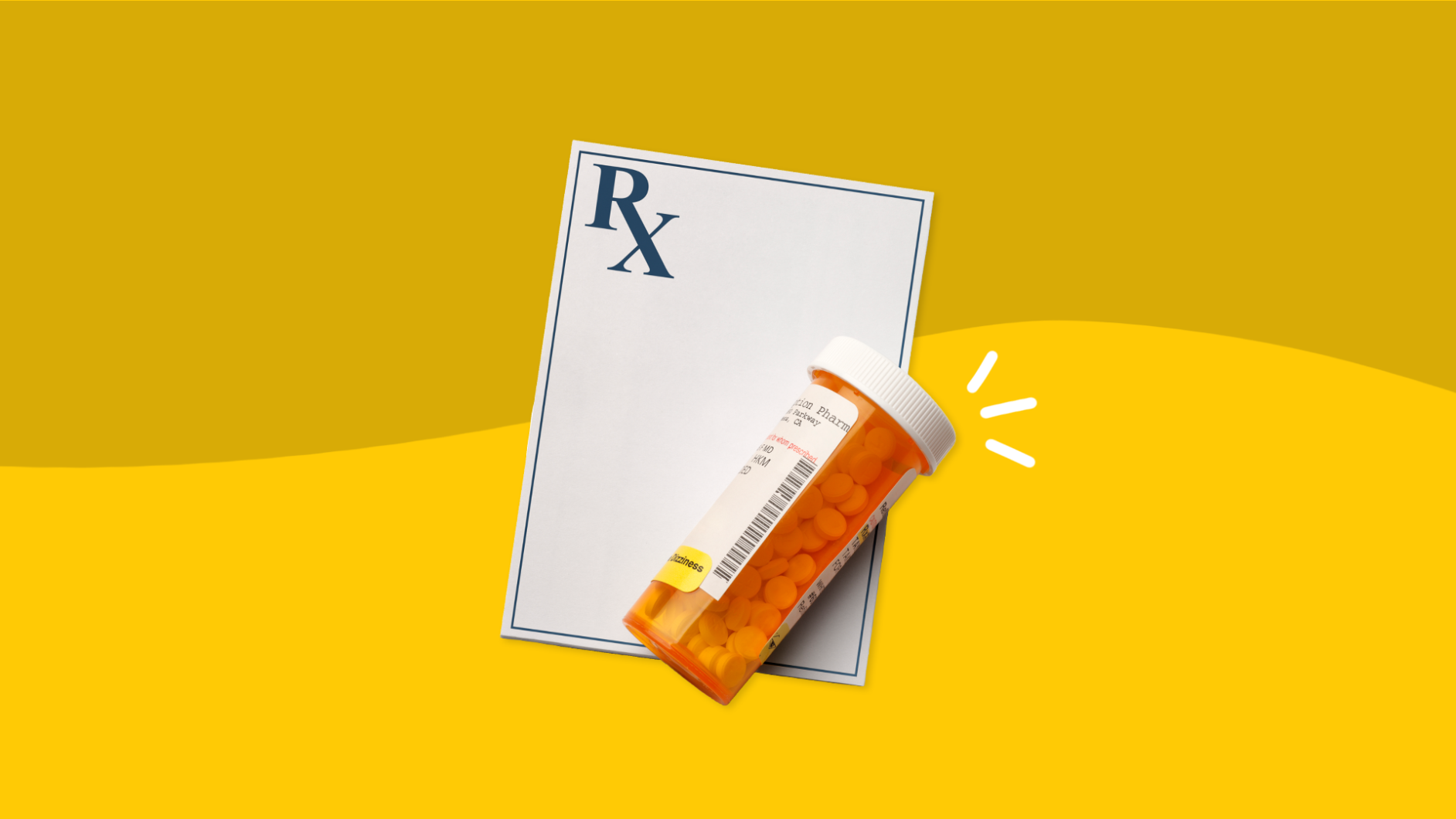Common gabapentin side effects | Serious side effects | How long do side effects last? | Warnings | Interactions | How to avoid side effects
Gabapentin is a generic anticonvulsant that is also available under the brand names Neurontin, Gralise, and Horizant (gabapentin enacarbil). As an anti-seizure medication, gabapentin is used along with other antiepileptic drugs to help control partial seizures in people with epilepsy. It is also used to relieve postherpetic neuralgia, a type of nerve pain caused by a shingles infection.
These are the only two approved uses of gabapentin, but gabapentin is most often prescribed off-label as a non-opioid alternative for nerve pain, postoperative pain, pain due to injury, fibromyalgia, restless legs syndrome (RLS), and other medical conditions. However, gabapentin does have side effects and may not be right for everyone. Before taking gabapentin, carefully review possible side effects, any pre-existing conditions it may worsen, drug interactions, and ways to avoid problems when taking this drug.
RELATED: What is gabapentin?
Common side effects of gabapentin
The most common side effects of gabapentin include:
- Dizziness
- Sleepiness
- Swelling of the extremities
- Uncontrolled eye movements
- Tremors
- Weakness
- Diarrhea
- Dry mouth
- Infection
- Sore throat
- Cough
- Constipation
- Nausea
- Vomiting
- Accidental injury
- Loss of coordination
- Blurred or double vision
- Lazy eye
- Abnormal thinking
- Weight gain
- Slurred speech
- Memory problems
- Depression
- Upset stomach
Children may experience additional side effects such as:
- Sudden and extreme mood changes
- Hostility
- Restlessness or hyperactivity
- Thought disorders
Children are also more likely than adults to develop infections when taking gabapentin.
Common side effects of gabapentin
The most serious side effects of gabapentin include:
- Suicidal thoughts and behaviors
- Muscle damage
- Slow breathing
- Withdrawal
- Severe allergic reactions
Gabapentin and impairment
Gabapentin’s neurological side effects can cause significant impairment. In gabapentin’s clinical trials, sedation, characterized by drowsiness, sleepiness, or tiredness, affected 20–30% of people, while dizziness was reported by close to 20% of trial participants. Double vision was reported in 8% of people taking gabapentin for nerve pain. Other vision impairments such as lazy eye, nystagmus (uncontrolled eye movements), and blurred vision were reported by at least one in 50 participants. Coordination issues affected one in 50 patients. Difficulty thinking, problems walking, and slurred speech were also experienced. Not surprisingly, accidental injury was reported by up to 3% of clinical trial participants.
When taking gabapentin, be careful to monitor its effects on attention, coordination, judgment, and vision. Daily activities may need to be modified and some may need to be curtailed altogether. There may be a risk of driving impairment, which carries the risk of a DUI citation. If mental impairment or vision problems significantly interfere with daily activities, talk to a doctor or other healthcare professional about alternatives to gabapentin.
How long do gabapentin side effects last
With a half-life of five hours in children and five to seven hours in adults, the most common side effects, such as dizziness and somnolence, will improve 12–24 hours after the last dose is taken. Severe muscle damage and severe allergic reactions may take several days of hospital treatment to resolve. Gabapentin withdrawal typically lasts about seven days but could last longer if the drug is not being taken as directed.
Gabapentin contraindications & warnings
Gabapentin changes the way the nervous system works, so it may cause problems in some people. Some people may not be able to take gabapentin because of underlying medical conditions.
Abuse and dependence
Gabapentin is a controlled substance in many states. Some people abuse gabapentin for its sedative effects, particularly in combination with other drugs. Gabapentin causes withdrawal symptoms when taken in high doses or over a long period of time. Healthcare providers are advised to monitor people with a history of drug abuse to watch for signs of gabapentin misuse.
Overdose
The standard dose of gabapentin ranges from 300 to 1200 mg taken three times daily. The maximum FDA-approved dose is 3,600 mg a day. An overdose can be a medical emergency. If too much gabapentin is taken, symptoms will resemble alcohol intoxication:
- Sleepiness
- Dizziness
- Lethargy
- Double vision
- Slurred speech
- Altered mental status
- Tremors
- Diarrhea
If large amounts of gabapentin are taken, breathing can become slow and shallow. People have died of respiratory distress due to gabapentin overdose. If a gabapentin overdose is suspected, call a poison center helpline and get immediate medical attention.
Restrictions
Because of potential hazards, gabapentin may not be the right medication for some people. Anyone with allergies to gabapentin will not be able to take the medication. Other people may be able to take gabapentin, but they may have an increased risk of side effects or other issues due to pre-existing conditions. In those cases, a healthcare provider will use gabapentin cautiously and some patients may need to be monitored closely.
- Because of the risk of suicidal thoughts, people with depression or a history of suicide may need to be monitored for suicidal thoughts and behaviors. Suicidality is a greater risk when gabapentin is used to treat epilepsy.
- Gabapentin will require reduced doses in people with kidney problems. Gabapentin is cleared from the body primarily through the kidneys, so kidney dysfunction raises the risk of side effects. Those with a glomerular filtration rate (GFR) below 30 mL/min should not take extended-release gabapentin, but they can still take reduced doses of immediate-release gabapentin.
- Because gabapentin slows down breathing, those with lung problems may need to be monitored when taking gabapentin.
- Pregnant women should talk to a healthcare provider to weigh the benefits and risks of taking gabapentin. Animal studies have shown that gabapentin can cause birth defects, but there is no evidence that gabapentin causes birth defects or miscarriage in humans.
- Nursing women can take gabapentin but should inform the prescribing doctor or healthcare professional about breastfeeding when receiving a prescription. Gabapentin is present in breast milk, but there is no evidence that gabapentin harms a breastfeeding infant.
- Gabapentin is only FDA-approved for children 3 years or older to prevent seizures. All other use in children is off-label and has not been determined as safe or effective.
- Gabapentin is safe and effective for people older than 65, although dose adjustments may be necessary if kidney function is reduced.
Gabapentin interactions
Foods do not disrupt the absorption or effectiveness of gabapentin. However, other prescription drugs, over-the-counter medications, or dietary supplements may interact with gabapentin and worsen side effects or reduce the benefits of gabapentin.
- For people with a seizure disorder, gabapentin is never combined with the anxiety medication Wellbutrin (bupropion), the muscle disorder medications amifampridine and dalfampridine, the antinausea drug metoclopramide, and the immune-suppressing antibody muromonab-cd3.
- Other drugs that can also lower the seizure threshold include antipsychotics, stimulants, and monoamine oxidase inhibitors, which are a small family of drugs that treat depression, Parkinson’s disease, or bacterial infections. In people prone to seizures, combining these drugs with gabapentin will require monitoring.
- Gabapentin is a central nervous system depressant. It slows down the brain and causes sedation and dizziness, raising the risk of accidental injury. Other CNS depressants can worsen mental and visual impairment caused by gabapentin. These include alcohol, cannabinoids (marijuana), sleeping aids, anxiolytics (drugs that reduce anxiety), sedatives, opioids, tricyclic antidepressants, antinausea drugs, antihistamines, seizure medications, and some types of antibiotics.
- Antacids and bile acid sequestrants may affect the body’s ability to absorb gabapentin when taken orally. As a general rule, wait at least two hours after taking an antacid before taking a dose of gabapentin. Take gabapentin at least one hour before or four hours after taking a bile acid sequestrant.
How to avoid gabapentin side effects
Gabapentin side effects, such as sedation and dizziness, are commonly experienced, but many other side effects are possible. There are a few measures people can take to minimize side effects.
1. Take gabapentin as directed
Take the dose as prescribed, usually 300–1,200 mg taken three times daily. Don’t take extra medicine or skip a dose. Gabapentin can be taken with a meal or on an empty stomach.
2. Tell the doctor about all medical conditions
To avoid side effects, tell the healthcare provider prescribing gabapentin about all medical conditions, especially:
- Kidney disease or hemodialysis treatments
- Depression or mood problems
- Suicidal thoughts or behaviors
- Diabetes
- Lung or breathing problems
- Seizure disorders or history of seizures
- Pregnancy or pregnancy plans
- Breastfeeding or any plans to breastfeed
- Any history of drug or alcohol abuse
3. Tell the doctor about all medications being taken
Certain drugs will worsen gabapentin side effects, so make sure the prescriber knows about all prescription drugs, over-the-counter drugs, and supplements that are taken regularly, particularly:
- Opioids
- Anxiety drugs
- Sedatives or sleep aids
- Any other drug that causes drowsiness or sleepiness
4. Take gabapentin with food
If taking gabapentin causes digestive system problems such as nausea, vomiting, or stomach upset, try taking each dose with a meal.
5. Do not take gabapentin with antacids
Depending on the type, antacids can increase the risk of side effects or reduce the effectiveness of gabapentin. When an antacid is taken, wait at least two hours before taking a dose of gabapentin.
6. Be careful about driving and other risky activities
Because sedation, dizziness, vision changes, and other impairments are common adverse effects of gabapentin, avoid driving, operating machinery, or engaging in any potentially hazardous activity that requires full attention and focus when first taking gabapentin.
7. Avoid drinking alcohol
Alcohol combined with gabapentin increases the risk of impairment, so alcohol should be avoided while taking gabapentin.
8. Avoid medicines and supplements that cause sedation
To avoid impairment, try not to combine gabapentin with common over-the-counter medications that cause sedation, such as antihistamines. Some popular dietary supplements also cause sleepiness, such as melatonin, valerian, or kava.
9. Watch for signs of breathing problems
Gabapentin can slow down breathing, particularly in high doses. Seek medical help at any sign of respiratory problems including blue lips, blue skin, shallow breathing, difficulty breathing, or noticeable changes in heart rate.
10. Do not stop taking gabapentin
Gabapentin can cause withdrawal effects when stopped suddenly. If the drug is not working or the side effects are intolerable, get medical advice before stopping gabapentin. Withdrawal can be avoided with a progressively tapered dose prescribed by a doctor or other healthcare professional.
Resources:
- Gabapentin. Epocrates.
- Gabapentin compound summary, U.S. National Library of Medicine.
- Gabapentin drug summary, Prescriber’s Digital Reference (PDR)
- Gabapentin prescribing information, U.S. National Library of Medicine
- Neurontin prescribing information, U.S. National Library of Medicine











